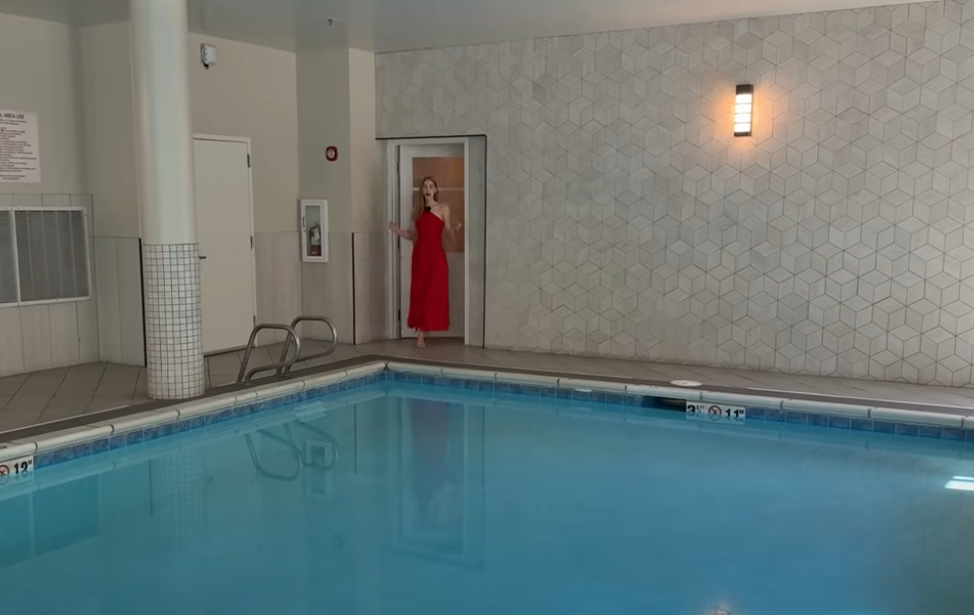Whether you’re traveling, studying hospitality, or working in the tourism industry, knowing hotel vocabulary is essential. Hotels use a wide range of terms to describe rooms, services, staff roles, and customer experiences. Understanding these words will not only help you communicate better but also make your hotel stays more comfortable and enjoyable. This article explores essential hotel vocabulary and explains each term in clear, everyday language.

1. Types of Hotels
Different hotels cater to different needs, and the following terms describe common hotel categories:
- Luxury Hotel: A high-end hotel offering premium services, fine dining, spa facilities, and personalized experiences.
- Budget Hotel: A low-cost hotel that provides basic services and clean rooms without extra amenities.
- Boutique Hotel: A small, stylish hotel known for its unique design and personalized service.
- Resort: A hotel located in a vacation area (beach, mountain, etc.) offering recreational facilities such as pools, golf courses, and entertainment.
- Hostel: A low-cost lodging often used by backpackers, with shared rooms and bathrooms.
- Bed and Breakfast (B&B): A small lodging establishment, usually in a private home, that offers overnight accommodation and breakfast.
2. Types of Rooms
Hotels offer various types of rooms depending on the guests’ needs:
- Single Room: A room with one bed, typically for one person.
- Double Room: A room with one double bed or two single beds, suitable for two guests.
- Twin Room: A room with two separate beds for two people.
- Suite: A large room or set of rooms that may include a bedroom, living area, and sometimes a kitchenette.
- Connecting Rooms: Two rooms with a door between them, often used by families.
- Accessible Room: A room designed for guests with physical disabilities, featuring wider doors, handrails, and roll-in showers.
3. Common Hotel Vocabulary: Booking and Check-in
When you reserve and arrive at a hotel, you’ll encounter a variety of useful terms:
- Reservation: An arrangement made in advance to secure a room.
- Check-in: The process of registering at the front desk upon arrival.
- Check-out: The process of leaving the hotel and paying the bill.
- Front Desk: The reception area where guests check in, ask questions, and request services.
- Receptionist: The staff member who assists guests at the front desk.
- Bellhop / Porter: A hotel staff member who helps guests with their luggage.
- Concierge: A staff member who assists with bookings, directions, and recommendations for local attractions.
4. Guest Services and Amenities
Hotels offer a wide range of services to improve the guest experience:
- Room Service: Food and drinks delivered to your room.
- Housekeeping: The department responsible for cleaning rooms and public areas.
- Laundry Service: A service where clothes are washed, dried, and returned to your room.
- Wi-Fi: Wireless internet access, often free in modern hotels.
- Complimentary: A term used for free items, such as complimentary breakfast, water, or toiletries.
- Mini-bar: A small refrigerator in the room with drinks and snacks (often not complimentary).
- Amenities: Features provided for comfort or convenience, such as a fitness center, swimming pool, spa, or business center.

5. Room Features
Here are common items and features found inside hotel rooms:
- Bedside Table: A small table next to the bed.
- TV / Flat-screen: Televisions available for in-room entertainment.
- Safe: A small, secure box for storing valuables.
- Air Conditioning (A/C): A system for cooling the room.
- Heating: A system for warming the room in colder seasons.
- Iron and Ironing Board: Often available in the room or upon request to press clothing.
- Toiletries: Small bottles of shampoo, conditioner, soap, and lotion provided by the hotel.
6. Payment and Policies
Understanding hotel policies is important for a smooth stay:
- Rate: The cost per night of staying at the hotel.
- Deposit: A sum of money held in advance to secure your booking or cover damages.
- Cancellation Policy: Rules about fees or refunds if you cancel your reservation.
- No-show: When a guest fails to arrive without canceling in advance.
- Late Check-out: Requesting to stay in your room past the usual check-out time, sometimes for a fee.
- Early Check-in: Arriving before the standard check-in time; availability may vary.
7. Staff Roles in a Hotel
Different employees ensure the hotel runs smoothly:
- General Manager: The person in charge of hotel operations.
- Housekeeper: Cleans and maintains guest rooms and public areas.
- Valet: Staff member who parks and retrieves guest vehicles.
- Doorman: Opens doors, helps with luggage, and welcomes guests.
- Maintenance Staff: Responsible for repairs and upkeep of the hotel.
- Banquet Staff: Helps organize events, conferences, and catering services.
8. Expressions and Phrases for Guests
When staying at a hotel, knowing common phrases can help:
- “Do you have any rooms available?” – To ask if a room can be booked.
- “I have a reservation under the name…” – When checking in.
- “What time is check-out?” – To know when you need to leave the room.
- “Can I get a wake-up call at 7 a.m.?” – To request a phone call to help you wake up.
- “Could I get extra towels, please?” – To request more items.
- “Is breakfast included?” – To ask if your room rate covers breakfast.

9. Problems and Complaints
Sometimes things go wrong during a stay. Here are words you might use to report a problem:
- “The air conditioning isn’t working.”
- “There’s no hot water in the shower.”
- “My room hasn’t been cleaned today.”
- “I’d like to speak with the manager.”
- “Can I change rooms?” – If your current room is not satisfactory.
10. Departure Vocabulary
When your stay is ending, here are useful terms:
- Final Bill: A summary of all charges to be paid before leaving.
- Luggage Storage: A service to hold your bags after check-out.
- Shuttle Service: Transportation provided by the hotel, often to and from the airport.
- Feedback Form: A short survey asking for your opinions on the hotel stay.
- Review: A written summary of your experience, often shared online.
Conclusion
Whether you’re a guest, a language learner, or someone entering the hospitality industry, hotel vocabulary is essential for effective communication. From making a reservation to checking out, every step of the hotel experience includes specialized terms that help create smooth, professional interactions. By learning and using this vocabulary, you can feel more confident, informed, and prepared for your next stay—or your next job in hospitality.



